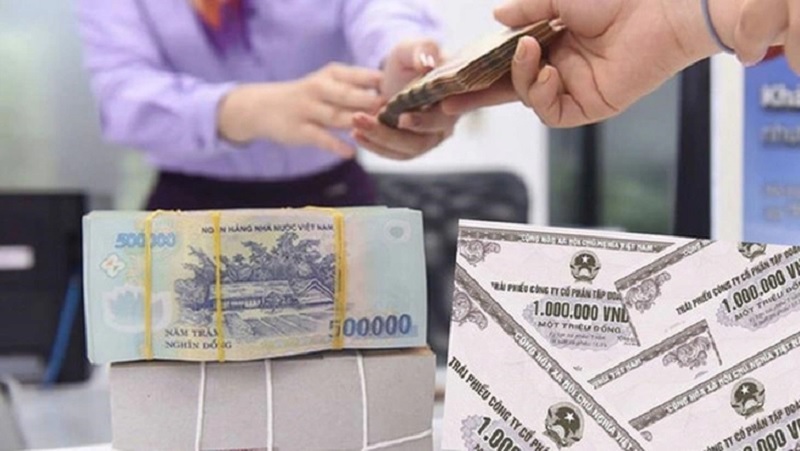Prospects for investment channels in Vietnam
According to Mr. Huynh Hoang Phuong, a finance specialist, the present economic and legal cycle is promoting the rise of risky assets; nevertheless, investment channels are also confronting negative external occurrences.

The outlook for investment asset classes in Vietnam is seen as promising over the next 1 to 3 years.
General Context
Firstly, Vietnam's economy is entering a period of solid recovery, marking the beginning of a new cycle of economic growth that is expected to last for many years. This economic resurgence is a significant driving force for the growth of the stock market and marks the initial recovery of the real estate market before it returns to a growth phase following a period of accumulation. In addition to strong economic recovery, changes in the legal environment will also significantly impact the development of many asset channels in the new cycle.
However, unfavorable international fluctuations may create stagnation in Vietnam's economic growth during this new cycle. Firstly, global economic growth is slowing. In the U.S., while the economy remains in growth mode, there has been a weakening in disposable income growth and the job market. As a result, the likelihood of an economic recession or stagnation phase in the U.S. is gradually increasing. Given Vietnam's highly open economy, the country's economic growth could face negative impacts if the U.S. economy stagnates in the future. Secondly, global geopolitical situations are becoming increasingly complex and may persist for many years due to conflicts in multiple regions and geopolitical competition among major power groups. This complex geopolitical environment carries the risk of supply chain disruptions and could drive global inflation back up.
Therefore, it can be said that the current investment environment can be described with the phrase "expect the unexpected." In other words, the general outlook for Vietnam's investment asset classes is in the early stages of a long-term growth phase but may face sudden and unpredictable adverse external events.
Many asset classes are creating wealth accumulation opportunities for investors, but diversification is necessary for the upcoming 3-year cycle.
With the overall picture as described, Mr. Phương projects the outlook for Vietnam's asset classes as shown in the table above.
In the next 6 months to a year, favorable performance is expected in stocks, gold, and a relatively positive outlook for deposits. For a 3-year horizon used for asset accumulation and long-term reallocation, the priority order is: stocks and real estate. Investors should maintain a diversified portfolio, allocating smaller proportions to deposits and gold to hedge against adverse external fluctuations.
The Decade's Opportunity
Mr. Phương said Vietnam's stock market is projected to be one of the top-performing assets over the next 1 to 3 years, supported by the following factors:
First, Vietnam's economic cycle will return to a growth phase of 6.5%-7% over the next few years, with listed companies' profits growing by double digits.
Second, the valuation foundation is relatively reasonable for long-term accumulation.
Third, monetary policy is supportive, with relatively low interest rates likely to be maintained until early 2025, gradually increasing to average levels by the second half of 2025, but unlikely to rise significantly.
Fourth, the stock market faces a significant opportunity for an upgrade, which may only happen once in a few decades, offering substantial growth potential for the stock asset class. (From an investment and asset management perspective, the upgrade refers to Vietnam's stock market being promoted to emerging market status by MSCI, expected between 2026-2028, enabling more comprehensive access to foreign capital and a real "upgrade" in information disclosure, accounting standards, etc.)
A New Real Estate Cycle
The new Land Law is being implemented as Vietnam's economy recovers strongly, and low interest rates create favorable conditions for the real estate market to gradually recover and accumulate resources for a new cycle.

As a large, low-liquidity asset market, real estate recovery and growth will take longer than the stock market.
The recovery and growth will occur first in central areas with real housing demand and gradually spread to peripheral regions. In the early recovery stages of the market, some "waves" may occur in narrow segments or regions, but these will be short-term and not widespread.
Therefore, according to the expert, real estate is unlikely to generate outstanding returns in the short term (under 1 year) unless through high-risk short-term speculation. However, it is an asset class worth considering for a new cycle with effective long-term returns.
Gold Awakens
After more than a decade of dormancy during a period of stable economic growth, low inflation, and relatively calm geopolitics, gold has reawakened since the COVID-19 pandemic ravaged the globe, inflation surged, and geopolitical conflicts increased. In the more than 50 years since the Bretton Woods system ended in 1971, gold has proven effective in protecting and growing assets during periods of heightened global geopolitical tension, high inflation, or significant risks of economic recession/crisis.
Currently, global geopolitical competition is intensifying and may continue for an extended period; risks of supply chain disruptions or global economic stagnation could further enhance gold's historic role. Therefore, holding a small proportion of gold can better protect accumulated assets, though the primary effective asset classes remain stocks and real estate.
Deposit Interest Rates Rising Slowly
The 12-month deposit rates could continue to provide a positive real yield but will not be too high over the next 2-3 years. Current interest rates have been low by historical standards since 2010, and the trend is for rates to rise slowly in the medium term. Deposits remain a dual-purpose tool for both earning interest and maintaining high liquidity and flexibility for reallocation when needed.
Corporate Bonds: In the short term, the corporate bond channel remains more suited for professional investors than retail ones, as the secondary market is still underdeveloped, and legal and infrastructure developments for this market are slower than expected. Issuance trends show that most companies with stable and good business models are not participating in bond issuance at this time, preferring bank credit channels with lower interest rates and easier access. "Companies issuing bonds are often in higher-risk sectors, requiring advanced analysis and assessment, making them unsuitable for most individual investors. Additionally, many new bond issuances are primarily for loan rollovers," said Mr. Phạng.
Foreign Currency (USD): The Fed's interest rate has peaked, and U.S. interest rates are expected to gradually decrease over the next 2-3 years, which will not support the USD's appreciation, and in fact, the USD could decline against the VND in certain periods. In the 2-3 year outlook, in Mr. Phương's view, the USD's rise against the VND is unlikely to outpace inflation and may reduce the real purchasing power for holders.
In conclusion, the outlook for Vietnam's investment asset classes is favorable over the next 1 to 3 years, offering wealth accumulation opportunities for investors, particularly in stocks and real estate. With unpredictable external risks, diversifying assets will help protect accumulated wealth and build more sustainable assets.








